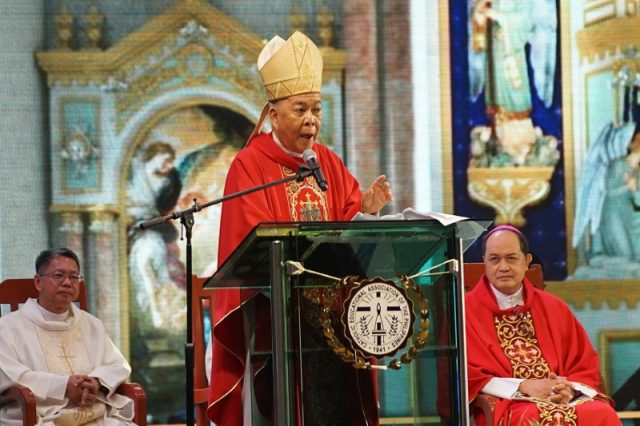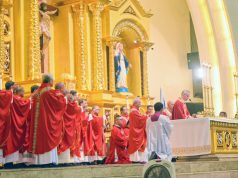
A senior church leader on Wednesday called on the country’s Catholic educators to actively confront illiteracy and challenges facing the basic education system, describing them as “desperate cries” that cannot be ignored.
Archbishop Romulo Valles of Davao urged educators to take bold action, calling them to be “agents of hope” in line with their Christian faith.
“…As Christian educators, we cannot in conscience allow our youth to be condemned to a life of illiteracy and ignorance through no fault of their own,” Valles said.
“We have chosen to be agents of hope. We will participate in solving the problem by walking alongside the youth as pilgrims, and accompany them in their journey towards enlightened literacy,” he said.
Valles made the call in his homily during the opening Mass of the 2024 Catholic Educational Association of the Philippines (CEAP) National Assembly at the SMX Lanang in Davao City.
The archbishop painted a grim picture of the state of basic education in the Philippines, citing alarming statistics from local and international institutions.
At least 90 percent of Filipino children aged 10 struggle to read or understand simple text, according to the World Bank’s 2022 data on learning poverty.
For the second straight assessment, the Philippines ranked in the bottom 10 of 81 countries in the Programme for International Student Assessment (PISA) 2022 rankings, with the lowest proficiency in reading, mathematics, and science among young learners.
Valles also lamented the high number of children who have dropped out of school since the COVID-19 pandemic, many of whom can no longer be accounted for.
A recent report from Congress revealed that only 45% of the country’s 45,000 public elementary and high schools are operating with qualified principals, or those who have passed the qualifying exams for the position.
“What does this mean? Quite simply, this means that we are met with a problem that cannot be ignored, much less trifled with,” Valles said.
To address these challenges, he appealed for the widest cooperation, patience, and perseverance from Catholic institutions.
“And we do so because that is what our faith demands of us to reach out to all and sundry, even to those beyond our normal boundaries and scope of influence,” he said.
The CEAP national convention brings together Catholic educators, administrators, and stakeholders from across the Philippines to address challenges in education and promote faith, hope, and social responsibility.
With the theme “Pilgrims and Agents of Hope: Embracing Synodality,” the three-day event features talks from prominent educators and experts who will address key issues in Catholic education and its role in shaping the future of learning in the country.









